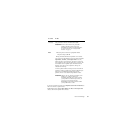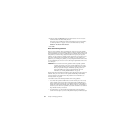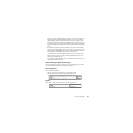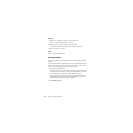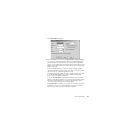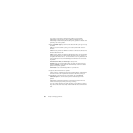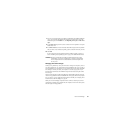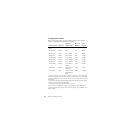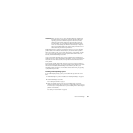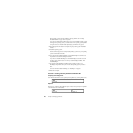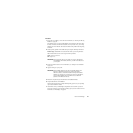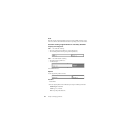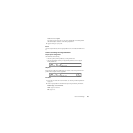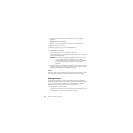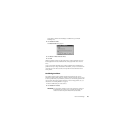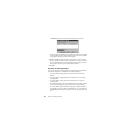Norton PartitionMagic 39
IMPORTANT! When you create, move, or resize a bootable partition, the partition must
begin below the boot code boundary specified in the above table for the
operating system to boot. With the exception of DOS 6.22 (or earlier),
partitions beyond 8 GB are visible to the current operating system. For
more information, see “Understanding the BIOS 1,024 Cylinder (8 GB)
Limit” and “Understanding the 2 GB Boot Code Boundary” in Help. The
disk map in the PartitionMagic main window displays indicators for the 2
GB boot boundary and the 1024 cylinder limit.
PartitionMagic displays a warning if you attempt to create, move, or resize a bootable
partition outside of the 2 GB boot code boundary. If you continue with the operation,
under some operating systems you may not be able to boot or see the partition. In either
case, you can resolve the problem by moving the partition back within the boot code
boundary with the PartitionMagic rescue disks.
If your system includes SCSI disks and you create a partition before a bootable Linux
partition, Linux may no longer be bootable. In this situation, you may need to create Linux
rescue disks, boot from the rescue disks, and repair the Linux boot information on the
Linux partition.
Some I/O cards (typically older RAID cards) only provide access to the first 8 GB of a
disk under DOS. Consequently, if you resize the operating system partition beyond 8 GB
and it becomes unbootable, the PartitionMagic rescue disks may not allow you to
manipulate partitions on that drive. You should be cautious about resizing any operating
system partition beyond 8 GB.
Installing a New Operating System
If you install multiple operating systems, you must follow the steps below for each of
them.
1 Disable BootMagic if you have it installed. See “Disabling BootMagic” on page 99.
2 Create PartitionMagic rescue disks.
See “Creating Rescue Disks” on page 5.
3 Make a new partition and set it active (if you are installing Linux to a primary
partition [Linux Ext2/Ext3], then it is necessary to set the partition active; however, it
is not necessary to set the partition active if you are installing Linux to the first logical
partition on the hard disk.)
See “Setting an Active Partition” on page 65.



